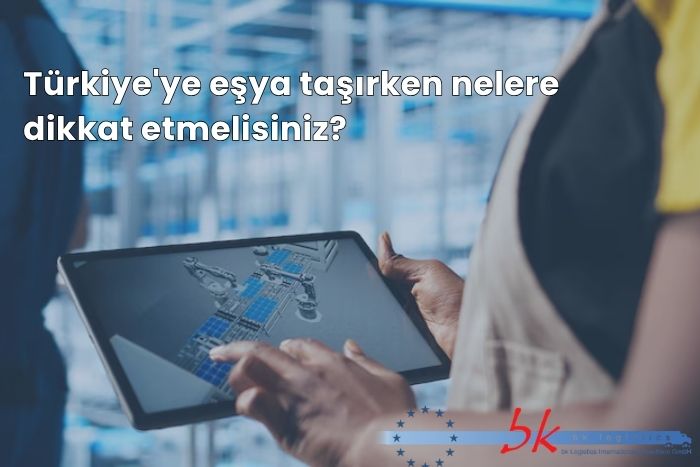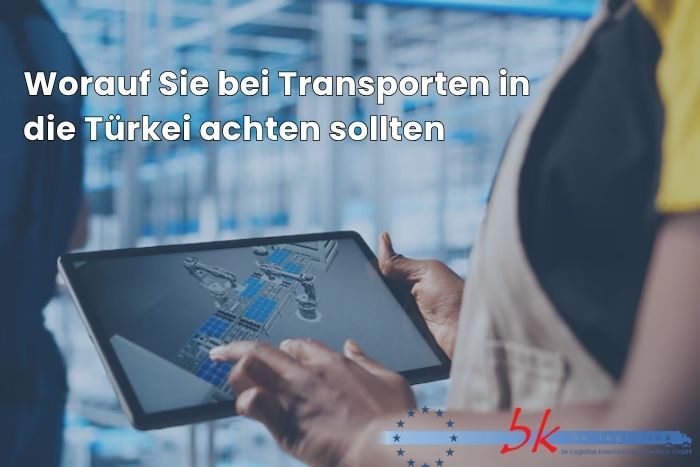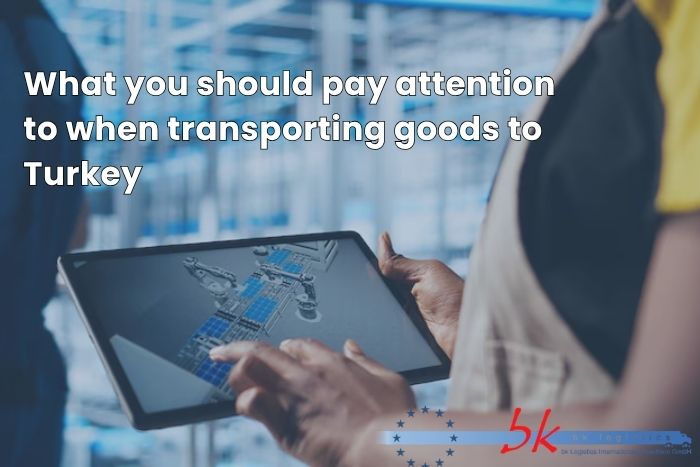News
What you should pay attention to when transporting goods to Turkey
Table of Contents
-
Overview of Transportation to Turkey
-
Planning and Preparation
-
Customs Procedures and Documents
-
Transportation Methods
-
Technological Support
-
Challenges and Solutions
Transportation to Turkey is a vital part of many businesses’ logistics strategies. As a bridge between Europe and Asia, Turkey offers significant trade opportunities but requires careful planning. In 2025, digitalization and automation have made these processes more efficient. With a trade volume of 37.6 billion Euros in 2017, Turkey is a key partner for Germany. This article outlines what to consider in transportation to Turkey to ensure smooth operations.
Reliable transportation demands thorough preparation and transparency. From route selection to customs clearance, multiple factors must be addressed. Cities like Istanbul and Izmir serve as logistics hubs, facilitating swift deliveries.
Overview of Transportation to Turkey
Transportation to Turkey involves moving goods via road, sea, air, or rail. Turkey is a major trade partner of the EU, particularly in textiles and automotive parts. For instance, a German company might export electronic components to Ankara.
Turkey’s geographic location provides a strategic advantage, connecting Europe to Asia and enabling access to Middle Eastern markets. However, knowledge of local regulations and efficient planning are essential to avoid delays.
Trade Partner: Strong ties with the EU.
Logistics Hubs: Istanbul as a key center.
Planning and Preparation
Effective transportation planning is critical. The route should be optimized for time and cost. Road transport is ideal for fast deliveries, while sea transport is more economical for large volumes. For example, a truck delivery from Germany to Istanbul takes about 3–5 days.
Communication with logistics partners and recipients is vital. A real-time tracking system allows monitoring of shipment status. Additionally, packaging compliant with Turkish standards prevents damage.
Route Selection: Optimized for cost.
Tracking: Real-time monitoring.
Packaging: Adherence to local rules.
Customs Procedures and Documents
Customs procedures are a core aspect. Turkey’s customs regulations are strict, requiring accurate documents like invoices and packing lists. Food imports need additional certifications.
In 2025, digital customs systems streamline processes. Documents can be submitted online, saving time. However, errors in documentation cause delays. A customs broker reduces risks.
Documents: Accurate and complete.
Digitalization: Fast processing.
Consultancy: Experts prevent errors.

Transportation Methods
The right transportation method depends on cargo and requirements. Road transport is flexible and fast but faces bottlenecks at borders like Kapıkule. Sea transport suits heavy loads, taking 10–14 days.
Air transport is ideal for urgent shipments but costly. Rail transport is eco-friendly but has limited availability. Method choice impacts cost and delivery time significantly.
Road: Fast and flexible.
Sea: Economical for volume.
Air: Urgent and swift.
Technological Support
Technological innovations enhance efficiency. Internet of Things (IoT) monitors cargo conditions, such as food temperature. Artificial intelligence optimizes routes using traffic data.
Blockchain ensures secure documentation and transparency. These technologies minimize risks and accelerate processes.
IoT: Real-time monitoring.
AI: Optimized routes.
Blockchain: Secure transactions.
Challenges and Solutions
Transportation to Turkey involves challenges. Customs delays occur during peak times, like holidays. Pre-prepared documents and digital platforms mitigate this.
Cost fluctuations arise from fuel or exchange rates. Long-term contracts stabilize costs. A shortage of qualified personnel may cause delays; training addresses this issue.
Customs Delays: Peak periods.
Costs: Fluctuations.
Personnel: Training.
With these measures, transportation to Turkey can be conducted efficiently.



